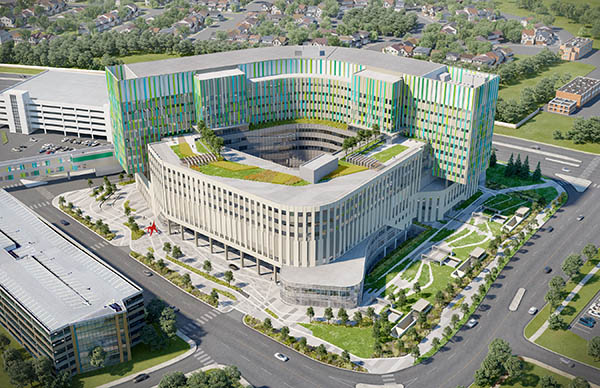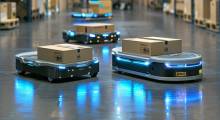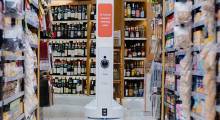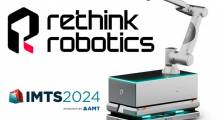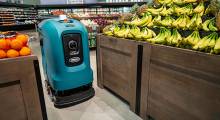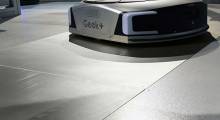One challenge for mobile robots in dynamic environments like hospitals is interfacing with elevators. TK Elevator GmbH yesterday announced that it has completed installation of about 30 digitally advanced elevators at the new Calgary Cancer Centre at Foothills Medical Centre.
“Hospitals and medical facilities throughout North America are embracing the important role digital elevator technologies can play in ensuring the safe, efficient movement of patients and medical supplies,” said Kevin Lavallee, CEO of BU North America and Group COO Field at TK Elevator. “The Calgary Cancer Centre embodies what smart hospitals will look like in the future, and we are proud to be a part of such an important project.”
TK Elevator said its more than 50,000 employees serve customers in over 100 countries. The Essen, Germany-based company separated from ThyssenKrupp AG in 2020 and had sales of about €8 billion ($7.99 billion U.S.) in fiscal year 2020/2021.
TK Elevator has over 24,000 service technicians, and its product portfolio includes elevators for residential and commercial buildings and custom systems for skyscrapers, as well as escalators, moving walkways, boarding bridges, and lifts. It also provides cloud-based systems such as its MAX platform.
Alberta invests in state-of-the-art hospital
The high-tech elevators are part of a larger investment. The government of Alberta, Canada, is spending CA$1.41 billion ($1.07 billion U.S.) for a facility that was the largest healthcare infrastructure project in the province when it was approved.
PCL Construction is general contractor for the project. With more than 8,100 employees across 30 major centers, PCL has an annual construction volume of CA$7.6 billion ($5.77 billion U.S.).
Construction started in 2017 and remains on track with an anticipated opening in 2023.
TK Elevator API lets robots use elevators
The 12 service cars at the main hospital feature TK Elevator's application programming interface (API), which allows autonomous mobile robots to use elevators like humans. This functionality will enable the swift transport of medical supplies throughout the facility, improving in-house logistics and increasing productivity, said the company.
The interface permits robots to act like human passengers. They can call for an elevator via Wi-Fi or 5G LTE, select a floor, and then exiting the elevator upon reaching its destination.
Using machine vision, a robot can determine if an elevator has enough room or if it's too full to accommodate the robot. The interface also informs the elevator system when to open the doors and adjust door dwell timing to ensure the smoothest journey possible for the robot.
The robotics interface can also be used for other purposes, including housekeeping and security, said TK Elevator. In addition, three of the service cars are designed to be remotely controlled when moving dangerous materials such as nitrogen, so employees no longer need to travel in tight spaces with potentially hazardous chemicals.
TK Elevator has also installed a standby and remote activating “code blue” on a group of elevators in the event of a high-risk medical event where a remote-operated elevator is readily available upon patient arrival at the facility.
Maintenance and support
TK Elevator plans to provide maintenance and service support on all elevator units, adding to the nearly 150 units it already supports at various health facility sites across Calgary.
“Calgary Cancer Centre is a place where advanced research and innovation will thrive, and it truly embodies the future of cancer care and treatment,” stated Gary Medeiros, president and CEO of TK Elevator Canada. “Our modern elevator systems blending remote and robot functionality fit perfectly within this hub of medical innovation and will enhance the overall experience for staff and visitors
Alberta Health Services (AHS) will operate the facility. It delivers health services to more than 4.4 million people living in Alberta, as well as some residents in Saskatchewan, British Columbia and the Northwest Territories. AHS employs more than 100,000 people. Upon completion, Calgary Cancer Centre will be the largest standalone cancer center in Canada, said the companies.
Examples of robots designed for environments such as hospitals include Diligent Robotics' Moxi, Relay Robotics' Relay, and Aethon's TUG.
Article topics
Email Sign Up



